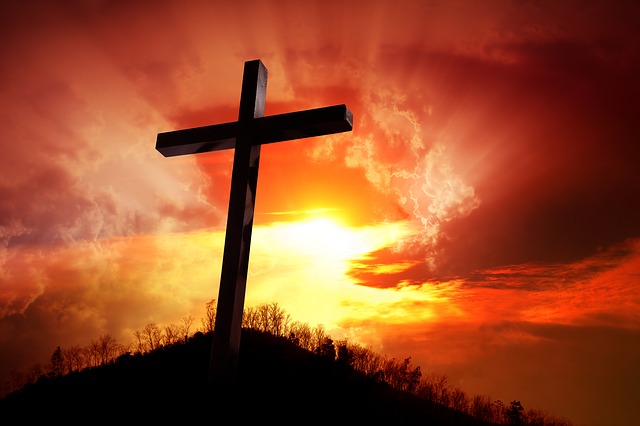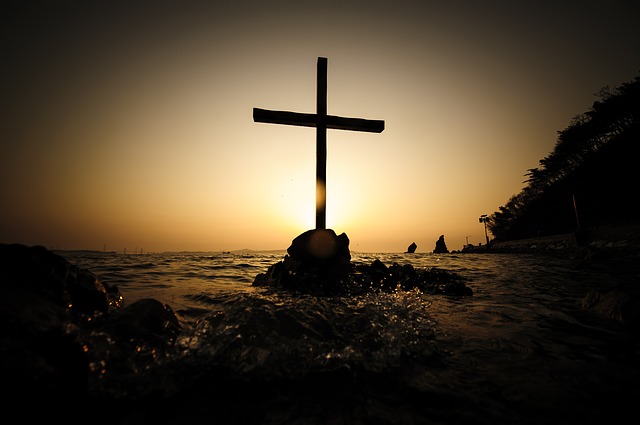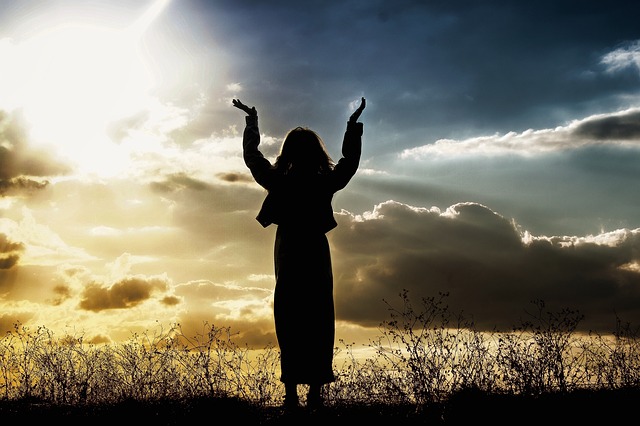
11 Besides this you know the time, that the hour has come for you to wake from sleep. For salvation is nearer to us now than when we first believed. – Romans 13:11
Sleeping?
Is anything easier than giving in to complacency? Let’s be honest; after we’ve been around the block a few times we are more than familiar with the route. Why not relax and let the cruise control take over. We’ve “been there” and “done that” so many times we can do it in our sleep. Or so we think.
But there is no checking out in the spiritual realm. Slumber is not an option. We don’t have the luxury of closing our eyes and coasting to the finish line. As Paul reminds us in his letter to the Romans, there is too much at stake.
Sacrifice
When it comes to the sinful nature of mankind and our need for a savior, Paul’s letter to the Romans is without equal. Thankfully, Paul doesn’t just point out our sin problem, he also points us to the Savior. Through faith in the sacrifice of Jesus on the cross, we experience the first component of salvation which we refer to as justification. Despite the fact that we are sinners, God is willing to declare us as righteous because of the blood of Christ. When we place our faith in Christ alone, God no longer sees our sins but rather the righteousness of Jesus who although sinless, bore the punishment for our sins on the cross.
But justification is just one part of God’s plan of salvation. God not only justifies us, but He also sanctifies us. He makes us holy. He sets us apart. In other words, He conforms us into the image of our Savior, Jesus Christ Himself. Through the process of sanctification, God removes the “world” from us and replaces it with the “divine”. Our sin is replaced with His Son. Our flesh is replaced with His Spirit. Our propensity to feed our pride is replaced with a desire to see Christ glorified. God doesn’t just save us from, He saves us for. Salvation isn’t a sinner’s insurance policy, it is a saint’s marching orders.
After covering a lot of doctrine in the first eleven chapters of this letter, Paul begins chapter twelve by urging us to offer our bodies as living sacrifices to God as a form of worship. We are no longer to be conformed to the pattern of this world but rather we are to be transformed by the renewing of our minds. Paul goes on to tell us that we are to humbly use our gifts in service to the body of Christ. Service to be done in love and humility.
Signs
After encouraging us to serve, Paul then gives us some signs of a true Christian. Our love is to be sincere. We are to abhor evil and cling to what is good. As Christians, we are to have a special love for one another and honor one another. Rather than being slothful in zeal, we are to be fervent in spirit as we serve the Lord. We are to rejoice in hope, be patient in tribulation, and be constant in prayer. We are to contribute to the needs of the saints and seek to show hospitality.
If the above is too easy, Paul continues. Instead of cursing those who persecute us we are to bless them. We are to rejoice with those who rejoice and weep with those who weep. We are to live in harmony with one another. Instead of making distinctions, we are to associate with all Believers. We are not to be wise in our own sight. Instead of repaying evil with evil, we are supposed to give thought to do what is honorable in the sight of all. As far as it is possible, we are to live peaceably with everyone. Instead of avenging ourselves, we are to leave vengeance to God. Instead of revenge, we are to care for our enemies. Instead of being overcome by evil, we are to overcome evil with good.
Further, recognizing that government is from God, we are supposed to submit ourselves to our governing authorities. God has given them the authority to reward and punish. We are not to impede their God-ordained responsibilities. Whether taxes, revenue, respect or honor, we are to pay those in authority what we owe them.
The only outstanding debt we are to have perpetually, is to love our fellow man. Love not only covers a multitude of sins, it also fulfills the law. If we truly love our neighbors, we will not wrong them.
And you thought you could go on Christian cruise control. Not at all.
After all of these exhortations, Paul says you are aware of the time. A new day is dawning.
WAKE UP!!!!
Now is no time for sleep, for salvation is nearer now than when you first believed. In other words, Jesus is coming soon!! When He returns, justification and sanctification will meet glorification. At that time we will be completely rid of sin and conformed to the image of Christ.
Because the return of Christ is imminent there is no excuse for complacency. Nor is there room for apathy. We are to be working out our salvation in fear and trembling. Take a look at Paul’s exhortations and ask yourself, are you sleepwalking in any of these areas?
Are you offering the members of your body as a living sacrifice? Are you being transformed by the renewing of your mind or conformed by the world? How are you doing in the area of serving in the body of Christ with your spiritual gifts? Are you marked by a sincere love? Do you abhor evil and are you clinging to what is good? Would you better be described as slothful or fervent? Are you rejoicing in hope, patient in tribulation and constant in prayer? Are you contributing to the needs of the saints and seeking to show hospitality?
Are you holding any grudges, or are you showing Christ-like love to your neighbors and enemies alike? In sincerity do you weep with the sorrowful and rejoice with the joyous? Are you able to live in harmony and associate with everyone or is it easier to make prejudices? Are you wise in your own sight or seeking the wisdom from above? Do you strive to live at peace with everyone? Would you rather take revenge on your enemies or extend to them the love of Christ?
How is your attitude towards those in authority? Do you recognize the fact that they are God’s agents or merely see them as your servants? Are you more concerned with your monetary debts or with the love you “owe” your fellow man?
As I said earlier, God has saved us for a purpose. Salvation implies a totally new way of living. We have been given a new set of values and a new power to live them out. Each day brings us one day closer to the return of our Savior in whose image we are being conformed. It has been said, “Christians are not only to become what we are; we are also to become what we one day will be.”
May the nearing of our salvation motivate you and shake you from your spiritual complacency.
2 Wake up, and strengthen what remains and is about to die, for I have not found your works complete in the sight of my God. 3 Remember, then, what you received and heard. Keep it, and repent. If you will not wake up, I will come like a thief, and you will not know at what hour I will come against you. – Revelation 3:2-3





